This Policy Brief addresses the role of the Yemeni private sector in mitigating the humanitarian crisis in Yemen as well as its relationship to international humanitarian organizations. It finds that a large number of Yemeni business owners have been engaged in trying to alleviate the suffering of Yemenis out of their own volition, but also in service of and cooperation with international humanitarian agencies. Despite this successful cooperation relationship, this Policy Brief also finds that there remains significant room for improvement particularly what communication and coordination measures are concerned. To this end, it is recommended – amongst others – that international humanitarian actors form a joint coordination platform with the Yemeni private sector, local authorities and civil society.
Restoring Central Bank Capacity and Stabilizing the Rial
This Policy Brief brings forward crucial recommendations to address Yemen’s current challenges in the financial sector. These recommendations result from the second Development Champions Forum, which took place in Amman, Jordan, between 14–16 January 2018 as part of the “Rethinking Yemen’s Economy” initiative. Here, among the urgent topics of discussion was the deterioration of the value of the Yemeni rial (YR), the magnifying impact this is having on the humanitarian crisis, and the need to re-empower the Central Bank of Yemen (CBY) as the steward of the rial and the economy in general. The recommendations collectively underline the need for the CBY to function in a more coherent, assertive manner – whereby its various branches operate as a united bank that is able to draft and implement economic and monetary policies for Yemen as a whole.
Addressing Security Sector Reform in Yemen. Challenges and Opportunities for Intervention During and Post-Conflict
edited by Marie-Christine Heinze
This CARPO Report is the result of a conference with the same name, which was jointly organized by CARPO and the Regional Office Gulf States of the Konrad-Adenauer-Stiftung (KAS) at the Dead Sea in April 2017. The papers by prolific experts on Yemen included in this publication discuss the changes, obstacles and limits for successful security sector reform in Yemen during and after the conflict and offer respective recommendations for national and international policy-makers in the field.
view CARPO/KAS Report
view printer-friendly version
Working Paper: Knowledge in Peacebuilding: Elements, Production, Dissemination
edited by Marie-Christine Heinze and Bilkis Zabara
This publication is the result of a summer school entitled “Academic Approaches to Peacebuilding in Yemen” held in Amman, Jordan, in September 2016, which brought together advanced academics from the University of Bonn and the Gender-Development Research & Studies Center at Sanaa University as well as MA and PhD students from Yemen and Germany. In an exercise over the course of two mornings, the student participants, led by the editors of this paper, developed recommendations for researchers and policy-makers on how best to approach, implement and present research on peacebuilding in societies in conflict. The exercise aimed to achieve two objectives: a) to develop a guide for young researchers, NGOs and policy-makers involved in generating knowledge on and for peace-building processes; and b) to subject the summer school participants to a intercultural / inter-academic writing and learning process in which a German and a Yemeni student teamed up to produce one recommendation. This paper is the result of this exercise.
Environmental Challenges in a Conflictive Environment. Iranian and Saudi Perspectives on the Risks of Climate Change and Ecological Deterioration.
by Jan Hanrath und Wael Abdul-Shafi
The fourth meeting of CARPO and the EastWest Institute’s ‘Iran-Saudi Track 2 Initiative’ dealt with the political, social and economic risks posed by current environmental challenges to Iran and Saudi Arabia alike. The workshop brought together academics, environmental experts, security analysts and former diplomats from Iran and Saudi Arabia as well as international experts. The participants discussed environmental issues to reach a better understanding of the political context and to identify opportunities and limits for Iranian-Saudi cooperation in the field of regional environmental policy. Fully aware that the current political situation makes cooperation very difficult, participants discussed potential avenues of exchange below the level of national governments and proposed initiatives for cooperation on a regional and international level. CARPO/EWI Brief 08 summarizes key insights and recommendations derived from the conference discussions.
view CARPO/EWI Brief
view printer-friendly version
Annual Report 2017
The year 2017 was a special one for CARPO: In the course of this year, we have taken significant steps forward in institutionalizing and professionalizing our nascent organization on the basis of our visions and principles. Our vision to conduct independent research and analysis in partnership with experts from the Orient is reflected in all our activities and projects. The idea to work towards a better understanding between Germany, Europe and the Middle East through research, consultation and exchange is a recurring theme throughout our work. The CARPO Annual Report 2017 gives an overview of our activities throughout the year.
“Women Nowadays Do Anything.” Women’s Role in Conflict, Peace and Security in Yemen
by Marie-Christine Heinze and Marwa Baabbad
This Study brings together the findings of qualitative research conducted in Ibb and Aden by the Yemen Polling Center (YPC) in cooperation with CARPO and Saferworld. It looks at the impact of the war on women and their families in these two regions, particularly in terms of security-related issues, and the roles women play or have played in the conflict as well as in the building of security and peace.
Addressing Yemen’s Most Critical Challenges. Practical Short-term Recommendations
This Policy Brief summarizes the short-term recommendations to address Yemen’s current most critical challenges in development and economy which resulted from the first Development Champions Forum. This Forum took place in Amman, Jordan, between April 29 and May 1, 2017 as part of the “Rethinking Yemen’s Economy” initiative. The challenges addressed in this Policy Brief were identified within three main, if overlapping, categories: the food security crisis, the problems faced by the banking industry, and the collapse of basic service delivery.
Envisioning the Future: Iranian and Saudi Perspectives on the Post-Oil Economy
by Danila Bochkarev and Jan Hanrath
The third meeting of CARPO and the EastWest Institute’s Iran-Saudi Track 2 Dialogue Initiative was dedicated to the repercussions of changing global energy markets on Iran and Saudi Arabia. The workshop brought together policy experts and economists from Iran and Saudi Arabia as well as experts from Europe. They discussed challenges and opportunities a ‘post-oil’ era might bring and explored potential areas for cooperation between both countries. While participants agreed on the necessity of cooperation for creating strong and less oil-dependent economies, from which both countries as well as the whole region would benefit, their assessments varied on where this could begin. CARPO/EWI Brief 07 summarizes key insights and recommendations derived from the conference discussions.
view CARPO/EWI Brief
view printer-friendly version
Between Dependence and Diversification. Making Sense of Iran’s Energy
by David Ramin Jalilvand
Parallel to the conclusion and implementation of the nuclear deal, Iran’s energy sector has become a subject of interest around the world. An estimated $100 billion in foreign investment are needed for the modernization of the Iranian energy industry. Following the relief of sanctions granted as part of the nuclear deal, the government of President Hassan Rouhani is now trying to gain cooperation with international companies. In order to make better sense of Tehran’s energy policy and to more accurately assess the overall situation in the Iranian energy sector, this paper argues that attention needs to also be given to Iran’s long-term developments. Unlike the past, Iran is now increasingly utilizing its oil and natural gas production domestically. This has important implications for the country’s political economy.
view CARPO Brief
view printer-friendly version
Women’s Role in Peace and Security in Yemen. Literature Review
by Marie-Christine Heinze
This literature review provides an overview of women’s interactions with peacebuilding efforts in Yemen, in view to informing current strategies on how to enhance their role. In doing so, it considers questions in regard to women’s political participation in the past; the impact of conflict on women’s lives; the social norms governing women’s activism; and examples of women’s involvement in peacebuilding processes.
Grey-scales. Negotiating the Civil State in Post-Revolutionary Egypt
by Sarah Wessel
As a slogan, dawla madaniyya (civil state) was one of the most often heard during the 2011 ‘Arab Spring’ uprisings across the Arab World. In this CARPO Study, Sarah Wessel explores the changing state-society relations in Egypt, following the so-called 25 January Revolution until the ousting of Muhammad Mursi. By investigating the complex assumptions, perceptions and circumstances expressed in support of the civil state, the authors shows that the diverse notions indicate a deeper shared concern: whether the emerging political and social extremes can be reunified in order to rehabilitate the disintegration of the national collective.
Victimized by Geopolitics. Iranian and Saudi Perspectives on the Refugee Crisis
by Wael Abdul-Shafi, Kawa Hassan und Adnan Tabatabai
The second meeting of CARPO and the EastWest Institute’s Iran-Saudi Track 2 Dialogue initiative took place in spring 2016 in Bonn. Current and former diplomats, analysts and security experts from both countries met alongside European scholars and experts to discuss “Iranian and Saudi Perspectives on the Refugee Crisis”. During the two-day conference, the participants elaborated on how the term “refugee“ is conceptualized in Saudi Arabia and Iran. They further shared their views and future visions about the ongoing conflicts and the humanitarian crises in Syria, Iraq, Yemen and Afghanistan – the four main ’departure contexts’ of refugees in West and Central Asia. CARPO Brief 05 summarizes key insights and recommendations derived from the conference discussions.
view CARPO/EWI Brief
view printer-friendly version
Returning to Transitional Justice in Yemen. A Backgrounder on the Commission on the Forcibly Retired in the Southern Governorates
by Jens Kambeck
This CARPO Report focuses on the work of the Commission on the Forcibly Retired in the Southern Governorates, which was established in the framework of the GCC Initiative. The author argues that if the unity of Yemen is to be preserved, the only path forward is to take concrete and earnest steps to rebuild trust between North and South through transitional justice, once the ongoing war has come to an end. Such a trust-building process can—amongst others—build on the work of the Commission presented here. The CARPO Report thus concludes with respective recommendations.
The EU’s Balancing Act in the Middle East. How to Engage Iran without Alienating GCC States
by Jan Hanrath
Initial hopes that the nuclear agreement between Iran and the E3+3 would increase regional security and decrease political tensions have been dashed. Conflicts in the Middle East are escalating further, and tensions between GCC states and Iran are intensifying. In light of this regional tug-of-war, the EU needs to develop a policy that succeeds in integrating the Iranian position into regional affairs without alienating other allies in the region. Against this backdrop CARPO organized a conference on EU-Middle East relations early this year. CARPO Brief 04 summarizes the conference discussions and outlines potential EU-Middle East initiatives.
view CARPO Brief
view printer-friendly version
Aden 1986 – The Forgotten Evacuation [in German]
by Hans Jürgen Wendler
In the final phase of the Cold War, as Moscow is losing its grip on the world-wide socialist community of states, a civil war in socialist southern Yemen forces thousands of foreigners to flee to the beaches of Aden. They are brought to safety in a joint rescue mission across Cold War frontiers, including ships from East and West. For the first time in the history of sea evacuations since 1945, a German freighter – the MS “Müggelsee” – is part of the mission. Despite the positive role the GDR played in the rescue mission, it subsequently increases the control of its merchant marine. Thirty years later, contemporary witnesses share their memories and the foreign ministries of both Germanies open their archives. Available only in German.
view CARPO Study
view printer-friendly version
The GDR, Honecker and the South Yemen Crisis of 1986 [in German]
by Miriam Müller
In January 1986, a internal conflict in the Yemeni Socialist Party (YSP) escalates into a bloody civil war. After a few days, Aden lies in ruins and with it the international credibility of a significantly decimated YSP – a fact that soon took a heavy toll on the erstwhile close relations with the German Democratic Republic (GDR) and its governing party, the Marxist-Leninist Socialist Unity Party. This CARPO Study provides an overview of this special friendship between the GDR and the People’s Democratic Republic of Yemen (PDRY) and analyses the consequences of the 1986 conflict in the context of the last phase of the Cold War. It concluded with a view towards a possible trajectory the GDR-PDRY relationship could have taken had not both states dissolved. Only available in German.
view CARPO Study
view printer-friendly version
Know Your Enemy – Iranian and Saudi Perspectives on ISIL
by Adnan Tabatabai und Kawa Hassan
CARPO and the EastWest Institute have established a confidential track 2 format for Iranian-Saudi dialogue. The first dialogue meeting took place In the fall of 2015 in Brussels. Current and former diplomats, analysts and security experts from both countries met alongside European policy-makers and experts to discuss “Iranian and Saudi Perspectives on ISIL”. During the 2-day conference, root-causes of the rise of ISIL were outlined along four key dimensions, and comprehensive strategies against violent extremist organizations such as ISIL proposed. CARPO Brief 03 summarizes the most important insights and presents tangible policy recommendations.
view CARPO/EWI Brief
view printer-friendly version
Iran Votes. A Primer to the Elections of Parliament and the Assembly of Experts
by Adnan Tabatabai
The twin elections of 26 February 2016 are the first to be held after the nuclear agreement between Iran and P5+1 has been signed. This CARPO Report sheds light on the current political climate in Iran and presents analytical criteria to apprehend both the interplay between parliament and government, as well as the key tasks for the Assembly of Experts. The main electoral contenders and parties are then introduced before the author provides insights on how senior officials view these dual elections. It concludes by highlighting the electorate’s key demands and by presenting a set of parameters to look into the upcoming months.
view CARPO Report
view printer-friendly version
Turkey’s Parliamentary Elections and the Quest for Stability
by Şafak Baş
Turkey is set to hold its parliamentary elections on November 1 in an atmosphere marked by political violence, polarization and insecurity. Regardless of the election outcome, Ankara will need to focus on national reconciliation and the reduction of sociopolitical tensions. Peace talks with the Kurdish PKK must resume. Even as its Western partners should substantially support Turkey in handling the influx of refugees into Turkey and Europe, the West must also urge Ankara to foster national reconciliation and to respect the democratic principles that are deeply rooted in the history of the republic.
view CARPO Brief
view printer-friendly version
Making Sense of Iran’s Iraq Policy
by Mohammad Ali Shabani
Iran’s relationship with Iraq has come into the limelight amid the onslaught of the Islamic State in Iraq and the Levant (ISIL). Iranian policy is geared towards maintaining Iraq’s territorial integrity, secure qualified stability and expand Iran’s economic sphere. To maximize its influence in Iraq, Tehran has been playing the long game, exploited the mistakes of other foreign actors, diversified its relationships with Iraqi factions, seized on Baghdad’s limited alliance options and sought a constructive relationship with Grand Ayatollah al-Sistani.
view CARPO Brief
view printer-friendly version
Yemen. Actors, Factors, Scenarios [in German]
by Marie-Christine Heinze
Three years after nation-wide protests forced Yemen’s President Ali Abdallah Salih to step down, the country is in a highly volatile state. Numerous, largely armed actors fight for the advancement of their strategic interests while Houthi militias increasingly block the efforts of the newly elected government in the capital city Sanaa. Regional and international actors are also relevant for the political developments of the past three years and those of the future. This CARPO Report offers an overview of the current context, the most important actors as well as relevant factors for future developments in Yemen. Three possible scenarios for the next 1-2 years are elaborated and options for German development agencies are proposed. Available only in German.
view CARPO Report
view printer-friendly version

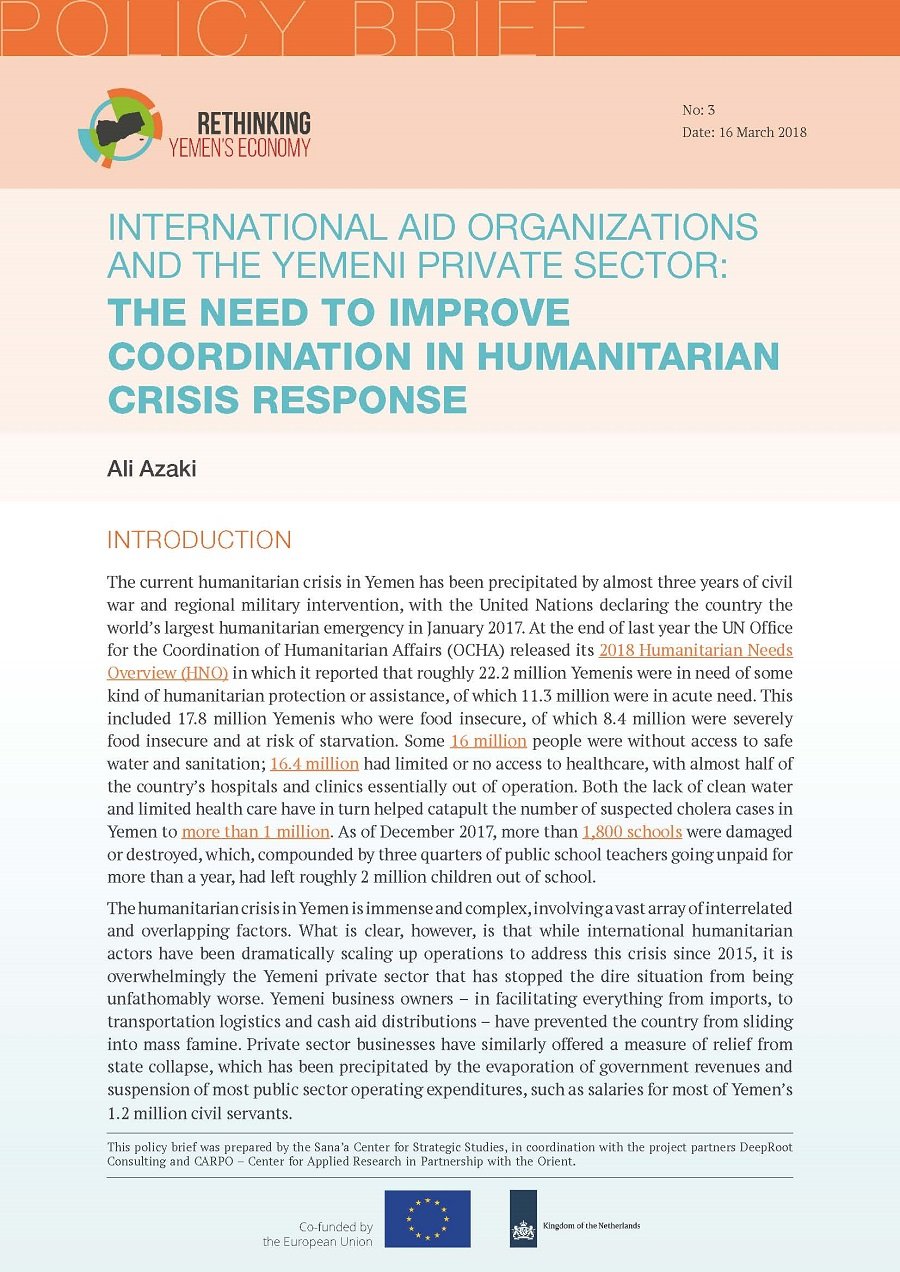

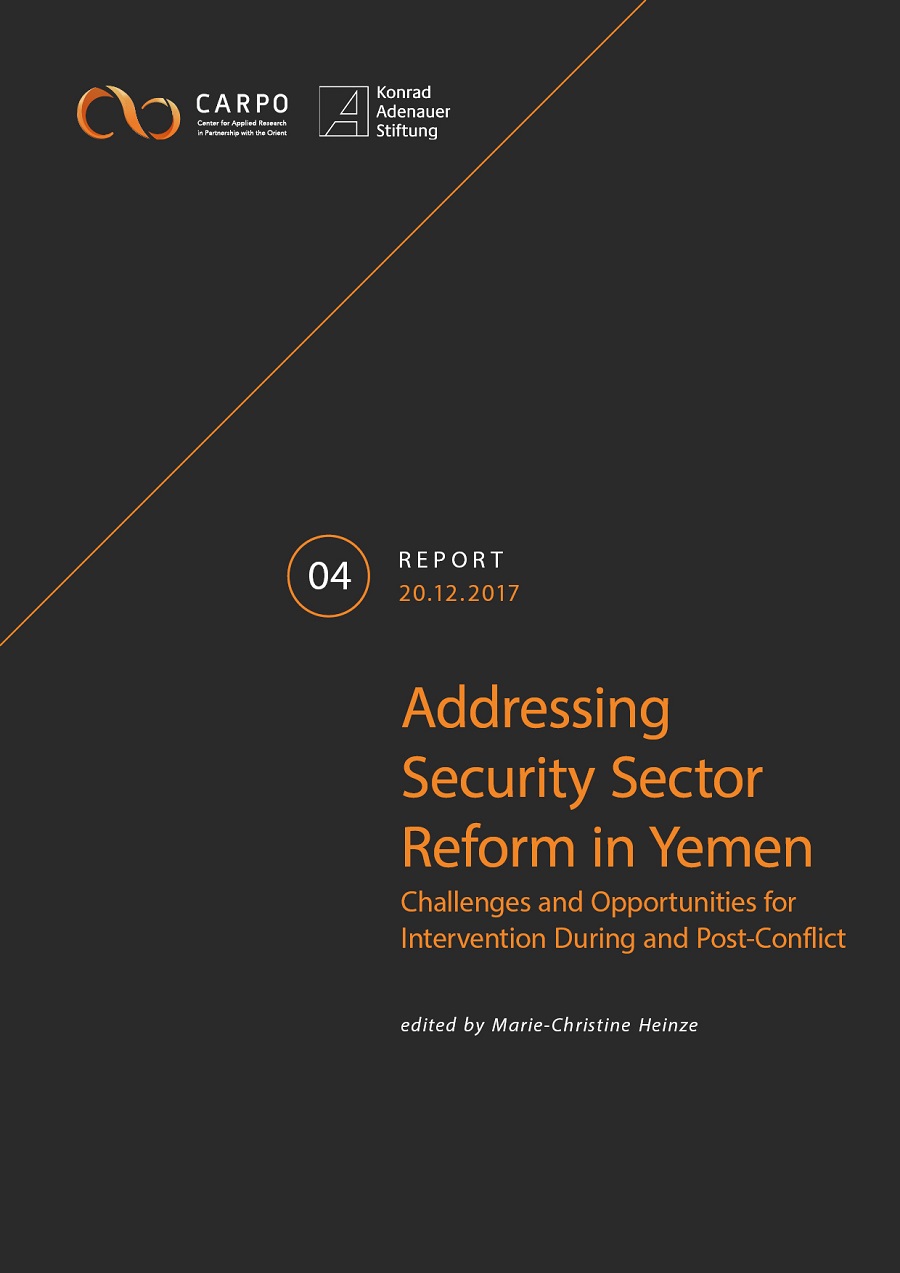


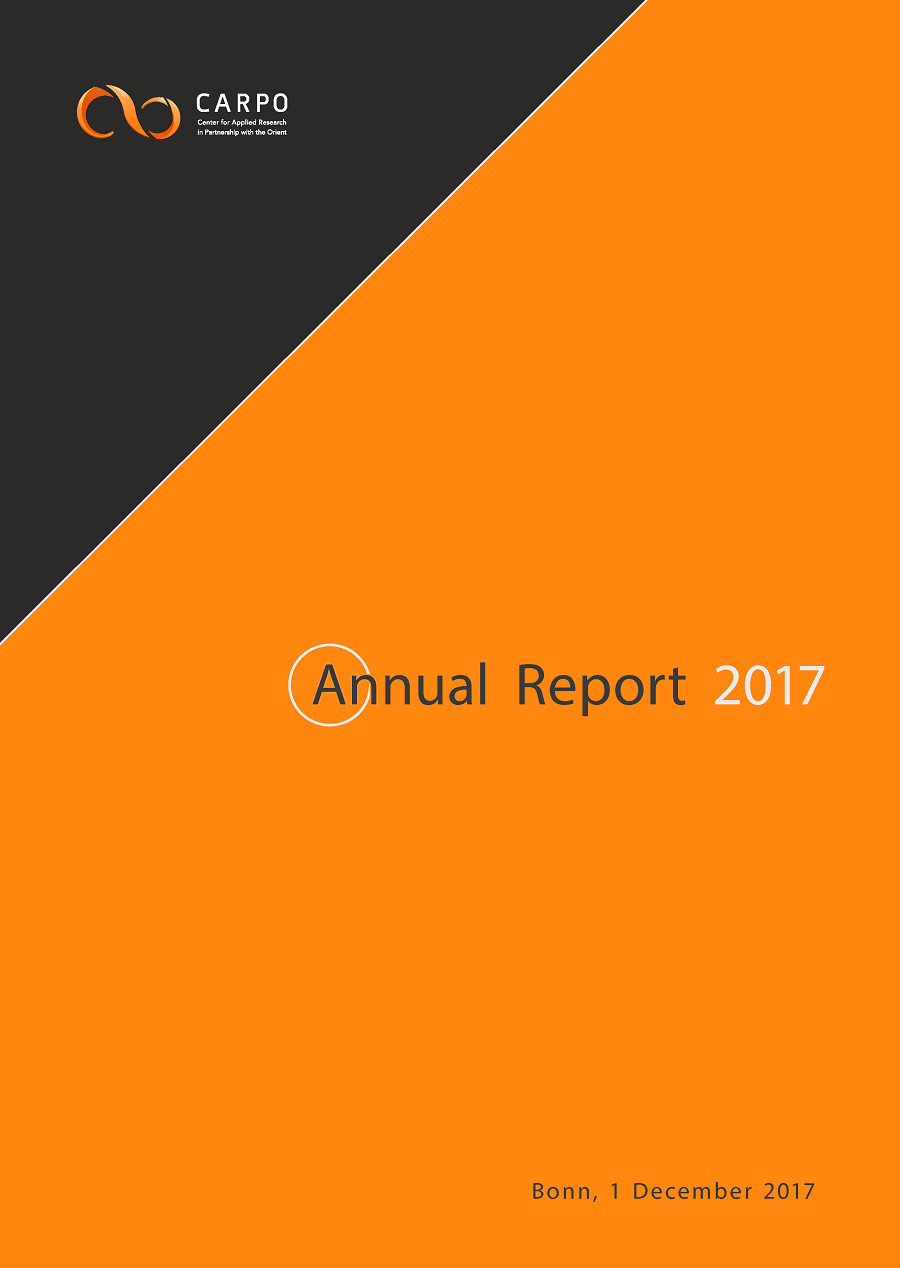

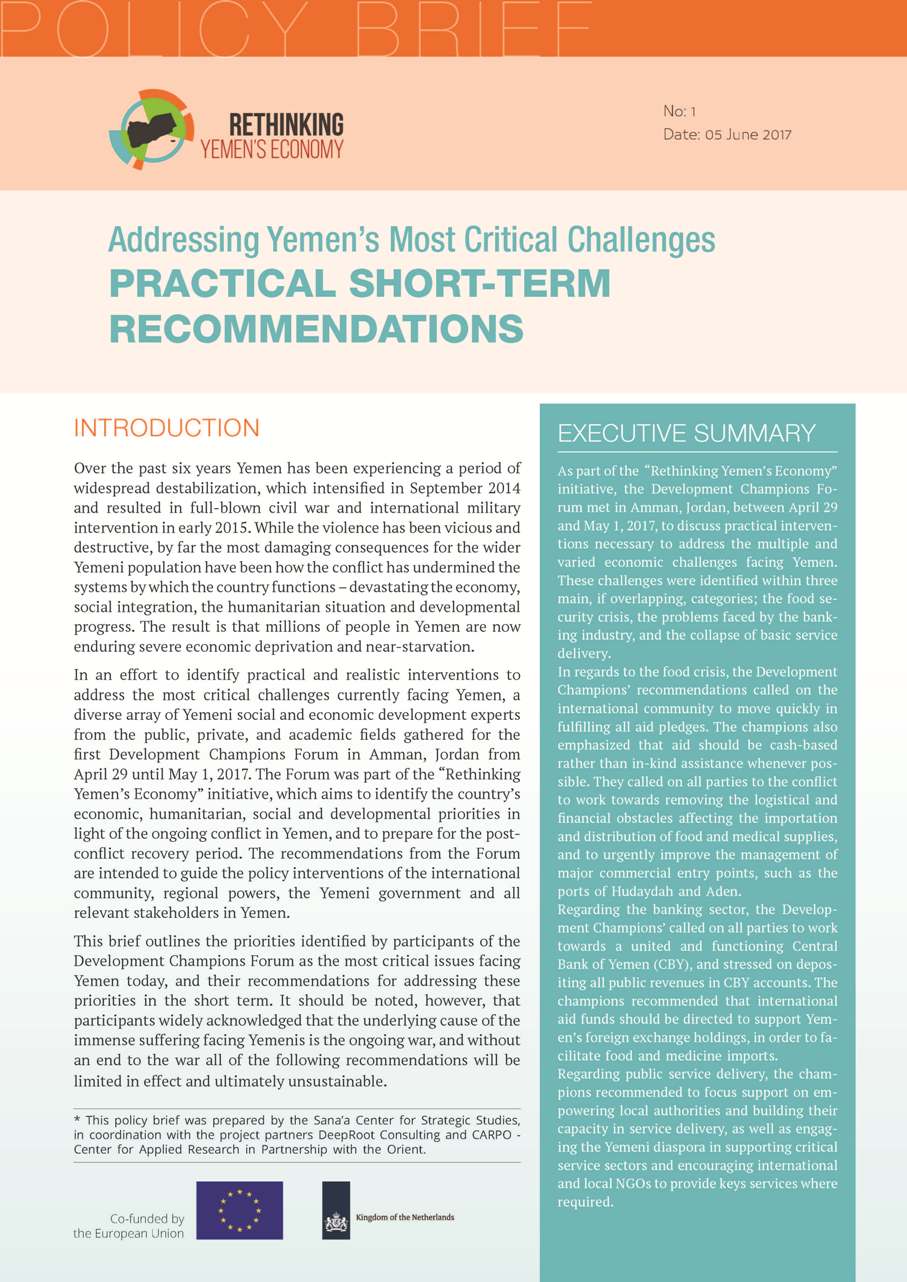




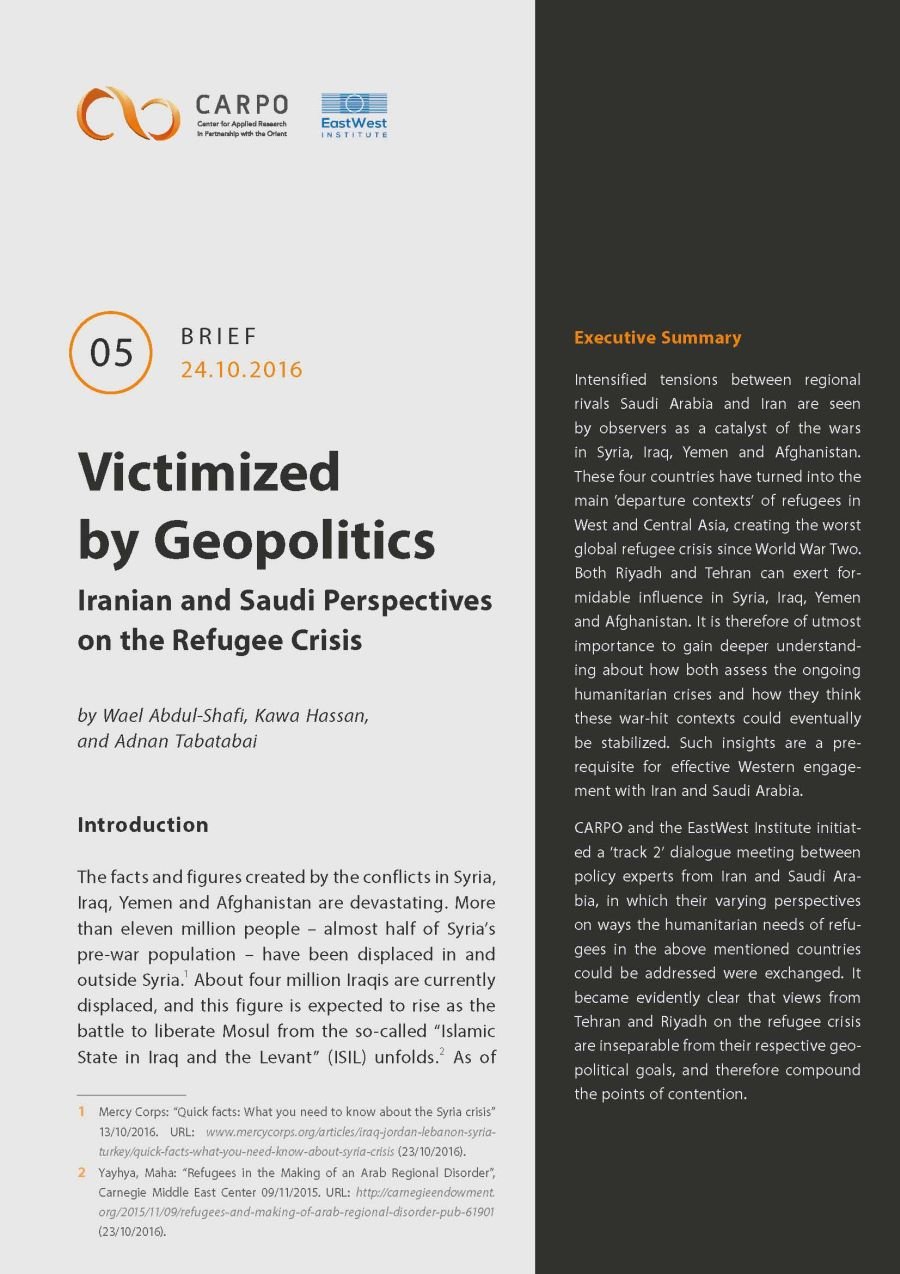

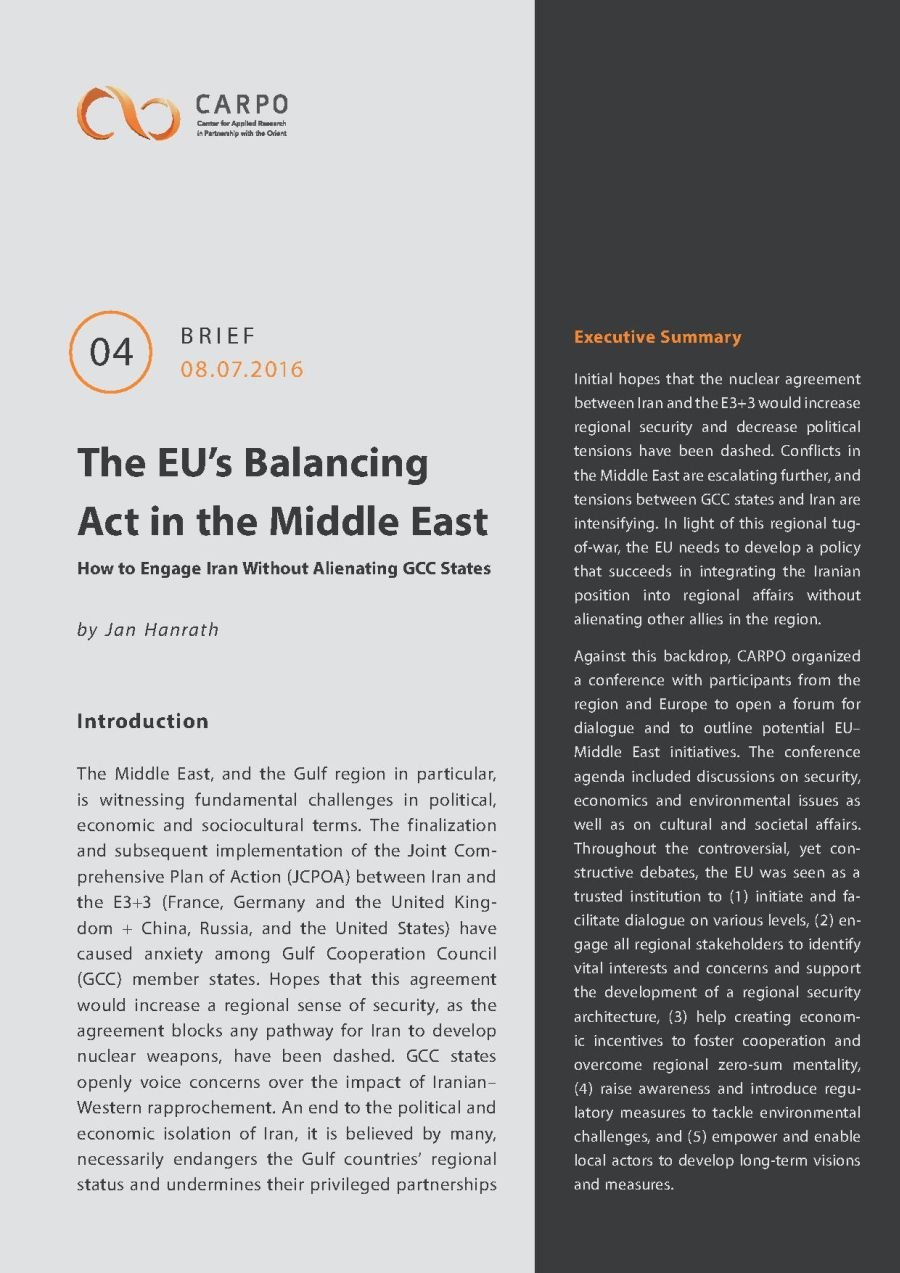
![Aden 1986 – The Forgotten Evacuation [in German]](https://carpo-bonn.org/wp-content/uploads/2019/08/Carpo_Study_02_Cover.jpg)
![The GDR, Honecker and the South Yemen Crisis of 1986 [in German]](https://carpo-bonn.org/wp-content/uploads/2019/08/Carpo_Study_01_Cover.jpg)
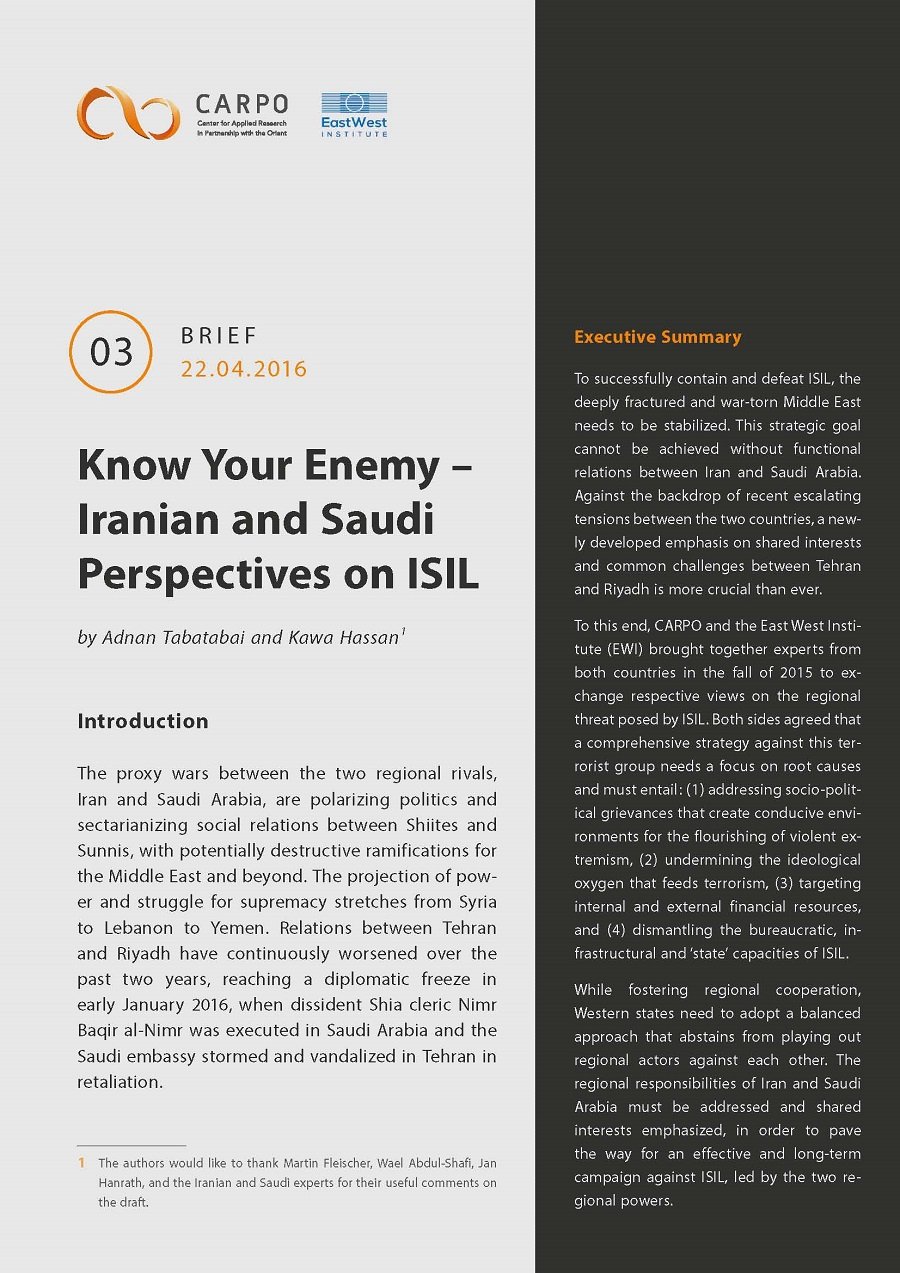



![Yemen. Actors, Factors, Scenarios [in German]](https://carpo-bonn.org/wp-content/uploads/2019/08/CARPO_Report_01_Cover.jpg)